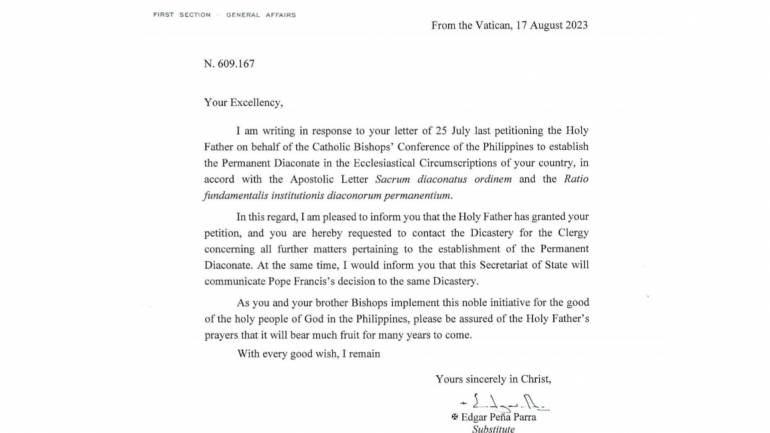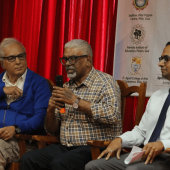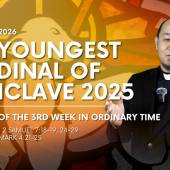Philippines: Vatican grants permission to institute Permanent Deacons

The Vatican has approved the petition of the Catholic Bishops' Conference of the Philippines (CBCP) on the establishment of the Permanent Diaconate in the Philippines.
A letter from the Vatican Secretariat of State confirming this advises the body of bishops to get in touch with the Dicastery for the Clergy to discuss the guidelines for the appointment of permanent deacons.
"I am pleased to inform you that the Holy Father has granted your petition, and you are hereby requested to contact the Dicastery for the Clergy concerning all further matters pertaining to the establishment of the Permanent Diaconate," states the letter signed by Archbishop Edgar Peña Parra, the Substitute of the Secretariat of State.
According to the Secretariat of State of the Vatican, this is in response to the CBCP's request in a letter dated July 25.
The Holy Father also extended a prayer to successfully establish the initiative for the good of the Catholic Church and believers in the Philippines.
The Philippine bishops first discussed the issue at the most recent CBCP plenary assembly with the intention of extending the reach of evangelization and church services, particularly in remote communities.
CBCP president, Kalookan Bishop Pablo Virgilio David, believes that having deacons who will work with parishes will also be a response to the lack of priests in the country.
The Vatican said that the permanent diaconate can be awarded to a young or married man.
Deacons are ordained clergy, although not as priests; instead, their primary role is to partner with the priest in the service of the church.
According to the data, it is estimated that there are 11 thousand priests throughout the Philippines who oversee more than 80 million Catholics throughout the country.
Radio Veritas Asia (RVA), a media platform of the Catholic Church, aims to share Christ. RVA started in 1969 as a continental Catholic radio station to serve Asian countries in their respective local language, thus earning the tag “the Voice of Asian Christianity.” Responding to the emerging context, RVA embraced media platforms to connect with the global Asian audience via its 21 language websites and various social media platforms.














